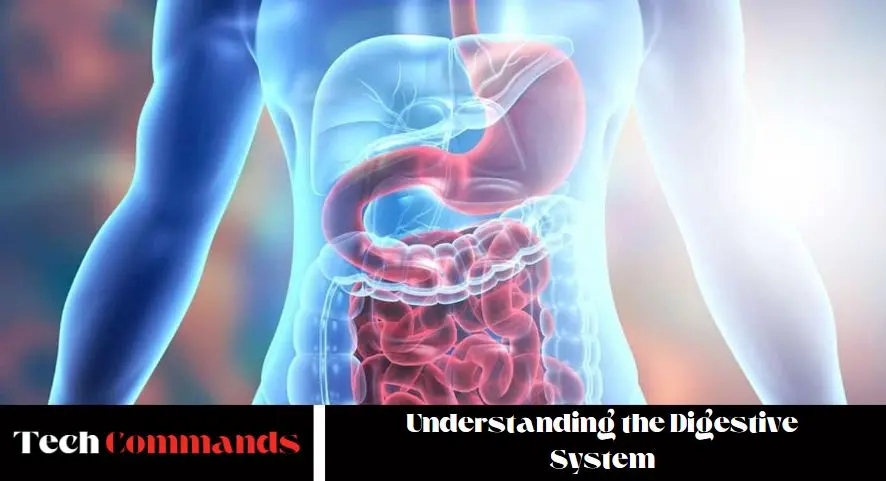Maintaining a healthy digestive system is essential for overall well-being. The digestive system breaks down food, absorbs nutrients, and eliminates waste. Fortunately, improving your digestive health doesn’t require drastic changes; simple and effective methods can make a significant difference. Incorporating a balanced diet, staying hydrated, engaging in regular physical activity, managing stress, and adopting mindful eating habits are some straightforward steps to enhance your digestive function. Making small adjustments to your daily routine can support your digestive system and promote better health.
In our busy lives, our eating habits have changed significantly, leading to an increase in the consumption of junk food. While junk food may be convenient and easy to prepare, it can harm your stomach and overall health. However, by slightly adjusting our diet, we can improve our daily routine and health. Incorporating easily digestible foods into our meals can make a significant difference:
Yogurt: Due to its carbohydrate content, yogurt can help relieve constipation. People with stomach issues should consider including yogurt in their diet, as it contains good bacteria that aid in treating stomach ailments.
Apple: The saying “An apple a day keeps the doctor away” holds for a reason. Apples are rich in potassium, vitamin A, phosphorus, vitamin C, and minerals that help reduce stomach problems.
Brown Rice: The soluble fiber found in brown rice helps lower LDL cholesterol levels in the blood.
Bananas: Bananas are rich in carbohydrates and help increase blood pressure and boost blood levels. It is also recommended to eat bananas during stomach infections.
Oatmeal: Oatmeal contains minerals and vitamins, including magnesium, iron, and phosphorus. It aids in removing bile and reduces the risk of stomach cancer.
Beetroot: Beetroot is beneficial for patients with piles. Beetroot juice is effective in treating jaundice, hepatitis, and vomiting.
Green Leafy Vegetables: Green leafy vegetables are high in iron. They are essential for growing children and pregnant women. These vegetables are easy to digest and help keep the stomach clean.
Understanding the Digestive System

Before we discuss how to improve digestion, it’s essential to understand how the digestive system works. The digestive system comprises several organs, including the mouth, esophagus, stomach, and intestines. Each part plays a unique role in breaking down food and absorbing nutrients. When you eat, your body uses mechanical and chemical processes to turn that food into the energy you need to thrive.
You may also Like It:
Healthy Life Wellhealthorganic Everything You Need To Know
Wellhealthorganic Home Remedies Tag – Complete Guide
Wellhealthorganic.com Easily Remove Dark Spots Lemon Juice
Well Health Tips in Hindi WellHealthOrganic
WellHealthOrganic Buffalo Milk Tag – Full Guide
Healthy Eating Habits
One of the most effective ways to enhance your digestive health is through your diet.
Balanced Diet
Eating a balanced diet with various nutrients helps your digestive system function efficiently. Add plenty of fruits, vegetables, lean proteins, and whole grains to your meals.
Fiber-Rich Foods
Fiber is crucial for good digestion. It adds bulk to your stool, making it easier to pass. Foods high in fiber include beans, lentils, broccoli, berries, and whole grains.
Probiotics and Prebiotics
Probiotics are beneficial bacteria that live in your gut and help with digestion. Yogurt, kefir, sauerkraut, and kimchi are great sources. Prebiotics, on the other hand, are fibers that feed these good bacteria. Foods like garlic, onions, and bananas are excellent prebiotic sources.
Hydration is Key
Water is vital for digestion. It helps break down food so your body can absorb the nutrients.
Importance of Water
Drinking enough water prevents constipation and keeps things moving smoothly through your digestive tract. Aim for at least eight glasses a day.
Hydrating Foods
In addition to drinking water, eating hydrating foods like cucumbers, tomatoes, and watermelon can also help you stay hydrated.
Regular Physical Activity
Exercise isn’t just good for your heart and muscles but also for your digestive system.
Exercise and Digestion
Physical activity helps food move through your digestive system more quickly, reducing the likelihood of constipation.
Best Exercises for Digestion
Activities like walking, yoga, and cycling can be particularly effective in boosting your digestive health.
Managing Stress
Stress can wreak havoc on your digestive system. When stressed, your body goes into fight-or-flight mode, slowing down or disrupting your digestion.
Stress and Digestive Health
Chronic stress can lead to conditions like irritable bowel syndrome (IBS) and exacerbate symptoms like bloating and gas.
Relaxation Techniques
Meditation, deep breathing, and mindfulness can help reduce stress and improve your digestive health.
Proper Chewing
You might not think much about chewing, but it’s the first step in the digestive process.
Importance of Chewing Food Well
Chewing thoroughly breaks down food into smaller pieces, making it easier for your stomach to digest.
Tips for Better Chewing
Try chewing each bite at least 20-30 times. Eating slowly and mindfully can also help with digestion.
Mindful Eating
How you eat can be just as important as what you eat.
Eating Slowly
Taking time to eat can prevent overeating and help your digestive system process food more effectively.
Avoiding Distractions
Focusing on your meal rather than watching TV or scrolling through your phone can help you tune into your body’s hunger and fullness signals.
Avoiding Unhealthy Habits

Certain habits can negatively impact your digestive health.
Smoking and Digestion
Smoking can weaken the valve at the end of your esophagus, leading to heartburn and acid reflux.
Alcohol Consumption
Too much alcohol can irritate your digestive tract and disrupt the balance of good bacteria in your gut.
Adequate Sleep
Your body needs rest to repair and maintain its systems, including digestion.
Sleep and Digestive Health
Lack of sleep can lead to digestive issues like constipation and indigestion.
Tips for Better Sleep
Maintain a regular sleep schedule, create a restful environment, and avoid eating large meals before bedtime to promote better sleep.
Herbal Remedies
Nature offers several remedies that can aid in digestion.
Ginger and Digestion
Ginger can help with nausea and improve overall digestion. Try adding it to your tea or meals.
Peppermint and Other Herbs
Peppermint can soothe the stomach and alleviate digestive discomfort. Other helpful herbs include chamomile and fennel.
Understanding Food Intolerances
Identifying and managing food intolerances can significantly improve your digestive health.
Common Food Intolerances
Lactose, gluten, and certain food additives can cause digestive issues for many people.
How to Identify and Manage Them
If you suspect a food intolerance, try an elimination diet or speak with a healthcare professional for testing and advice.
Avoiding Overeating
Overeating can overwhelm your digestive system and lead to discomfort.
Portion Control
Be mindful of your portion sizes. Using smaller plates can help you eat less.
Benefits of Smaller Meals
Eating smaller, more frequent meals can be easier on your digestive system than large, heavy meals.
Routine and Regularity
Having a consistent routine can promote better digestion.
Consistent Eating Schedule
Try to eat your meals simultaneously daily to help regulate your digestive system.
Importance of Routine
Establishing a regular eating, sleeping, and exercise routine can contribute to overall digestive health.
Frequently Asked Questions
What are some simple dietary changes I can make to improve my digestion?
Incorporate fiber-rich foods such as fruits, vegetables, whole grains, and legumes into your diet. These foods help keep your digestive system running smoothly. Additionally, probiotics like yogurt and fermented foods should be included to promote healthy gut bacteria.
How does staying hydrated affect digestion?
Drinking plenty of water helps break down food, allowing your body to absorb nutrients more effectively. It also softens stool, preventing constipation and promoting regular bowel movements.
Can regular exercise improve my digestive health?
Yes, regular physical activity stimulates the muscles in your digestive tract, helping food move through more efficiently. Exercise also reduces stress, which can negatively impact digestion.
How does stress affect the digestive system?
Stress can interfere with digestion by causing the muscles in the digestive tract to spasm, leading to issues like irritable bowel syndrome (IBS). Managing stress through relaxation techniques like meditation or yoga can improve your digestive health.
What role does chewing play in digestion?
Chewing thoroughly breaks down food into smaller particles, making it easier for your stomach to digest. It also stimulates saliva production, which contains enzymes that begin the digestive process.
Are there specific foods that are particularly good for digestion?
Food like yogurt, apples, bananas, oatmeal, beetroot, and green leafy vegetables benefit digestion. They provide essential nutrients and fibers that support digestive health.
How can I identify and avoid foods that upset my stomach?
Pay attention to how your body reacts after eating certain foods. Common culprits include spicy foods, fatty foods, and dairy products for lactose intolerant people. Keeping a food diary can help you track and identify problematic foods.
Conclusion
Improving your digestive system doesn’t require complicated changes or drastic measures. You can significantly enhance your digestive health by making simple adjustments to your diet and lifestyle. Incorporating fiber-rich foods, staying well-hydrated, exercising regularly, managing stress, and eating mindfully are all effective strategies. Additionally, beneficial foods like yogurt, apples, brown rice, bananas, oatmeal, beetroot, and green leafy vegetables can provide essential nutrients and support optimal digestion. These easy steps can lead to better digestion, improved nutrient absorption, and enhanced well-being, allowing you to enjoy a healthier and more comfortable life.

